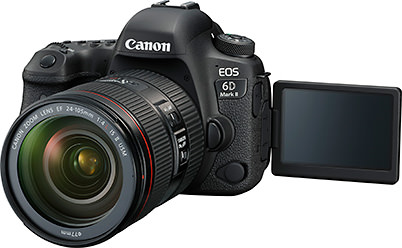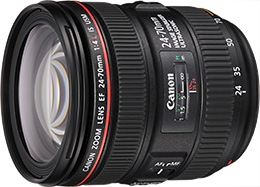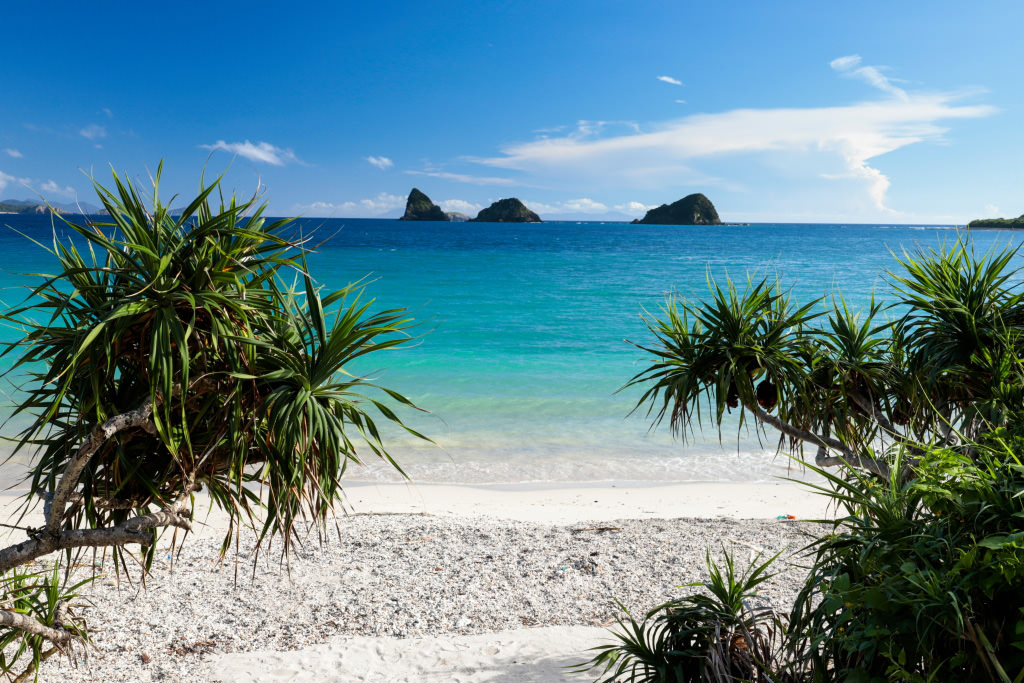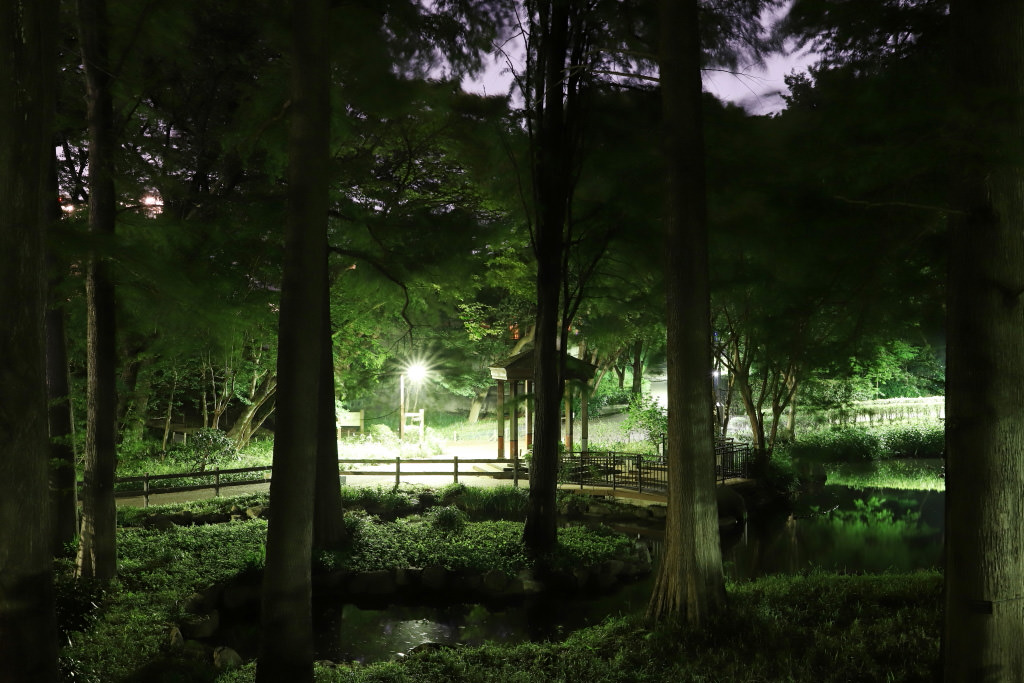An Initial Review of the EOS 6D Mark II (with Sample Images)
Released in November 2012, the EOS 6D made full-frame photography more accessible to a larger user base, achieving a loyal following along the way. Now, over four years on, it has received a major update in the form of the EOS 6D Mark II. Just how much more powerful is this successor? We take a first look, using landscape and street photographs shot by two professional photographers. (Photos by Ryo Ohwada, Jiro Tateno; Reported by: Ryo Ohwada)

A higher pixel count at 26.2 megapixels
There are probably more than just a few users out there who were overwhelmed with anticipation (“Finally!”) at Canon’s announcement of the EOS 6D Mark II. After all, the EOS 6D has been popular as an affordable, entry-level full-frame DSLR camera since its release in late 2012. The burning question on everyone’s lips would be, what kind of images will its successor, the EOS 6D Mark II, provide?
First of all, at 26.2 megapixels, the EOS 6D Mark II boasts an increased pixel count over its predecessor. The image processor engine has been enhanced to DIGIC 7, Canon’s latest. Not only so, the native ISO speed range now runs up to as high as ISO 40000. In fact, many will probably find the ISO 40000 images shot by the EOS 6D Mark II perfectly adequate for their uses, although that also depends on the usage objectives.

EOS 6D Mark II/ EF24-105mm f/4L IS II USM/ FL: 46mm / Aperture-priority AE (f/11, 25 sec, EV +0.7)/ ISO 100/ WB: Auto
Photo by Ryo Ohwada
In this image, shot at night, you can see how the transitions from the shadow areas to the highlight areas, as well as the subtle tonal variations, have all been reproduced in rich detail. The foreground stands out well from the background, lending a sense of depth and dimensionality to the image.
Related: Architectural Photography #4: Photographing Buildings at Night
Huge advances in AF performance
AF performance in still photography has also been significantly enhanced. The number of AF points has been boosted to 45, up from 11 points on the EOS 6D, and colour detection AF has also improved the camera’s face detection capabilities especially for outdoor shoots. Intelligent Viewfinder II enables users to see the AF points and electronic level, among other settings, even as they compose their shot. The AF system active during Live View shooting is Dual Pixel CMOS AF, which enables high-speed, highly accurate focusing through image plane phase difference detection AF.

EOS 6D Mark II/ EF100mm f/2.8L Macro IS USM/ FL: 100mm/ Shutter-priority AE (f/2.8、1/4,000sec, EV-0.7)/ ISO 8000/ WB: Auto
Photo by Ryo Ohwada
This shot used a shutter speed of 1/4,000 second, the fastest available on the camera, to capture raindrops beating down on leaves. The shapes and forms, which cannot be seen by the naked eye, are depicted in precise detail.
Vari-angle LCD monitor for the flexibility to shoot from a variety of angles
Yet another enhancement is the use of a touch-enabled Vari-angle LCD monitor for the rear monitor. This provides users with greater flexibility in composing their shots, even from unusual angles that would have otherwise been awkward or impossible to achieve.
Continuous shooting speed is also significantly faster, at up to 6.5 fps compared to up to 4.5 fps on the predecessor.

Some of the improved features on the EOS 6D Mark II rival those on higher-end models. Examples of such features are the Vari-angle touch-panel LCD monitor and lightweight body, which both provide greater freedom of movement and versatility. Indeed, this new ‘affordable’ full-frame camera seems poised to be the next popular longtime favorite.
EOS 6D Mark II lens pairings to try
Here are two lenses that make wonderful pairings with the EOS 6D Mark II.
EF24-70mm f/4L IS USM
The compact, powerful EF24-70mm f/4L IS USM is a perfect match for a compact, lightweight camera, especially for street photography. It covers a wide- to mid-telephoto angle-of-view suitable for capturing most subject matters, making it a great general-purpose lens. The macro mode allows you to photograph insects and any other tiny objects you come across while shooting.


EOS 6D Mark II/ EF24-70mm f/4L IS USM/ FL: 39mm/ Manual exposure (f/11, 1/80 sec)/ ISO 320/ WB: Daylight
Photo by Jiro Tateno
This image was shot at a time of the day where the sun’s position in the sky resulted in strong brightness contrasts. However, the camera’s wide dynamic range has ensured that there is no blowout or black crush in the glistening ocean or the shadows of the screw-pine leaves.
EF35mm f/1.4L II USM
With its high resolving power and bright aperture, this prime lens will increase your shooting versatility. All you need is this and a standard zoom lens with IS capabilities among your gear, and you should be able to handle almost all subjects.
Photo Review – EF35mm f/1.4L II USM


EOS 6D Mark II/ EF35mm f/1.4L II USM/ FL: 35mm/ Aperture-priority AE (f/8, 25 sec, EV+0.7)/ ISO 800/ WB: Auto
Photo by Ryo Ohwada
Note the natural transition in tones from the spot that is blown out due to light intensity to the areas that are most brightly lit. The colours are deep and rich, and the greens are depicted with clarity.
Stay tuned for more articles on the EOS 6D Mark II in upcoming weeks!
You might be interested in:
Interview with the Developers of the EOS 6D: Part 1, Part 2
Receive the latest update on photography news, tips and tricks.
Be part of the SNAPSHOT Community.
Sign Up Now!
About the Author
A monthly magazine that believes that enjoyment of photography will increase the more one learns about camera functions. It delivers news on the latest cameras and features and regularly introduces various photography techniques.
Published by Impress Corporation
Born in Tokyo in 1975. From around 1990, he came into contact with nature through fly fishing, and took up photography. From 1999, he travelled around the country taking photos with the theme of "Natural Beauty". He currently supplies photos for magazines, books, posters, calendars, and so on. He held an "Okinawa" photo exhibition in 2010, and "Northern Lights - Journey of Light/ Iceland" photo exhibition in 2017.
Born in Miyagi Prefecture in 1978, Ryo Ohwada graduated from the Tokyo Polytechnic University’s Graduate School of Arts. In 2005, his works were selected to be featured in the “reGeneration.50 Photographers of Tomorrow” exhibition at the Musée de l'Élysée in Switzerland. Other works have also been displayed both within and outside Japan, such as in the LUMAS gallery in Germany. Ohwada continues to showcase his unique works with the general public, actively contributing to magazines and advertising media well as holding frequent group and individual exhibitions. He is also a part-time lecturer at Tokyo Polytechnic University.




































